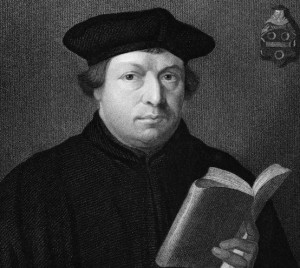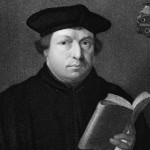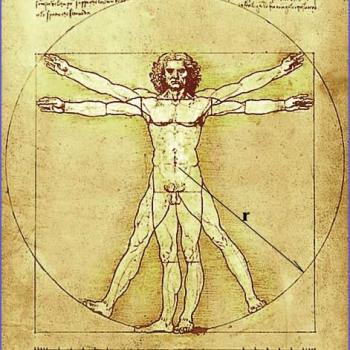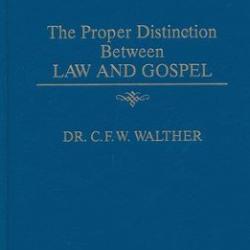
+++
Updated:
Chapter 2: Does the Christian Cease to be Under the Law of God?
Chapter 3: If the Law is Abrogated in Jesus Christ How Can the Ten Commandments be Eternal?
Chapter 4: Should the Preacher Reduce the Force of God’s Law?
Chapter 5 of 5: Sin Boldly or Welcome “Mr. Sin” Boldly? (Luther’s “Thomas Christian”)
+++
Welcome to the LADFD series: Luther’s Antinomian Disputations for Dummies. Regarding the title of this series — and the photo above, which I had a lot fun generating — I hope you interpret it as I intend: me trying to bring a little humor to a serious issue.
I hope you find the following post — admittedly a lot of work to read all the way through! — informative, worthwhile, and done in good faith – and that you will consider checking out other parts of the series.
First, some preliminaries:
- This is chapter 1, with proceeding chapterss coming every two days (three days over weekends). I will be posting chapters 2-4 on my own blog, and chapter 5 here as well.
- Note that all quotations in this series are not taken from the version of the Antinomian Disputations shown at the end of this post (Only the Decalogue is Eternal, or ODE), but from the version that contains the original Latin as well (Latin learners take note!), Solus Decalogus est Aeternus, (or SDEA).
Onward!
In recent years, there has been an increased interest in the topic of natural law/religion/theology in the writings of Martin Luther. The following three books pictured below are just a sampling of some of the more recent work that deals, either indirectly or more directly, with these issues:

To my knowledge, however, not much if any work has been done addressing the issue of natural law and theology in Martin Luther’s Antinomian Disputations. These disputations occurred during the years 1537-1540, six years before Martin Luther’s death, and in them much is said about the topic. Luther’s thoughts on this topic are somewhat complicated, but here I will attempt to systematically provide as clear a snapshot as possible of what he thinks — given the parameters of a reasonably short blog post.
For those of you already familiar with this content in the Antinomian Disputations, I invite you to scroll right to the bottom of this post to read my short concluding thoughts. Here, I try and sum up the big picture, and to relate it to contemporary theological challenges (i.e., things like the “Hypergrace” movement, and “Radical Lutheranism”).

There is one section of the Disputations where I believe Luther brings several of his most developed thoughts together in a short two paragraphs. He responds to this argument:
It is redundant to teach the things that are known by nature. The law is known by nature. Therefore it is redundant to teach the law.
Luther’s response:
Each proposition is false, since we teach and learn the things we know. Since memory is instable even in the masterminds trained best, it is necessary that the most learned have recourse to the books themselves and learn. Indeed, they learn more than everybody else and they do so constantly, as can be seen in the greatest talents who never rest. Furthermore, the law is not known in such a way that it is not necessary to teach or admonish with it, otherwise it would not have been necessary to give the law and send Moses; and we also do not know as much about the law as God wills. For who is there who ever knew how great and what an enormous evil sin itself is? Likewise, disobedience, hatred, wrath, greed, fornication, let alone the sins of the First Table? For we are so corrupted by original sin that we cannot see the magnitude of sin.
For there is our flesh, the devil, and the world who suggest differently and who obscure the law of God written in our heart. This is why it is always necessary here to be admonished lest we forget the mandate of God, especially since the law of God is the highest wisdom and the infinite fountain and source and spring of all virtues and disciplines towards God and men, because sin is infinite. So far no theologian or jurist has been found who could say or fully express, what great an evil lust and greed is. If there are those who truly feel sin, as David, those are truly in hell and dwell by the gates of death, as the Psalm says (18:5): “The terrors of hell found me.” (SDEA 333, italics mine)
In what follows, I offer short summary points from the two paragraphs above (note the italicized portions) and also supplement them with content from other parts of the Antinomian Disputations:
- Luther fully identifies the natural law, or the law that we find in the creation, with the law given in the Decalogue, or Ten Commandments, to Moses.
- God shared the Ten Commandments, given in history specifically to the Israelites, because they help us remember, “who we were before and who we will be in the future” (SDEA 321).
- On the other hand, knowledge from the ceremonial practices and civil laws[i] given to the Israelites was not universal, but particular (SDEA 321).[ii]
- In spite of his not having the law given at Sinai, Luther says that Abraham practiced the “love of righteousness[, which] is the highest degree of the law.” (SDEA 405)
- “The Decalogue… is greater and better [than circumcision] because it is written in the hearts and minds of all and will remain with us even in the coming life.” (SDEA 127, 129, see also 49, italics mine)
- Jeremiah’s “new covenant” (see Jer. 31:31,34) does not apply to the Decalogue passing away but to circumcision and other “ceremonial and judicial laws” (SDEA 215, 217).[iii]
- “Natural law” or the “law of nature” is intrinsic to us and is objectively good, even as it may be more or less strong (see below)

- The law of God is written in the hearts of all, even as it is obscured by our flesh (or sinful nature), the devil, and the world.
- We can know God’s law and not do it. In fact, we do know God’s law but don’t do it. We can also know God’s law but suppress that knowledge. Knowledge of the law is stronger in some than others.
- In the Antinomian Disputations, Luther indicates that even though the law of God is “natural”, the suppression of this knowledge (no doubt accompanied by a real searing of the conscience), can be rather brutal, even resulting in a kind of knowledge that is often not perceived or experienced as knowledge (SDEA 115).
- Luther even appears to suggest that human beings having the natural law is not necessarily true like “all men are mortal” is true. He mentions, for example, some men being “utterly unnatural” (SDEA 321).
- In sum, what these first two points show is that the actual existential situation for any particular person or people are bounded by [fallen] human nature.
- On the other hand, it is also influenced to a very large degree by the particular human activities a person or people have experienced on the ground. This leads us into our next three points.
- Luther does not pit the law in nature vs. our need/charge to teach, preach, and learn it.
- Again, the written law “only was given to [the Israelites] and the law of Moses pertains to that people only.” The rest, however, have the same law written on their hearts (SDEA 217).[iv]
- Because of original sin introduced in the Fall however, we live in sin and our corrupt and blind nature neither “sees not feels the magnitude of sin”. Man’s knowledge of the law is “very weak and obscured” and hence we need teaching.[v]
- In fact, prior to the giving of the Ten Commandments, the law “was almost totally fallen into oblivion and obscured,” which is why it “was renewed and indeed written and handed over to a certain people insofar as it is written, but not insofar as it is spoken, since this knowledge was common to all nations, as experience itself proves” (SDEA 321).[vi]
- Again, “[t]he law is common to all, but not all feel its force and effect. Nonetheless, whether people are converted or not, the law is still to be taught” (SDEA 111, italics mine, see SDEA 225 also).
- He says that when the law is taught to us in words, it is rendered “better known, more conspicuous, and clearer, so that it, even by its appearance, might lash and agitate the mind” (SDEA 343).
- The Holy Spirit is – and therefore the Church should be – relentless in using the Law in an “evangelical way,” to continue to make persons more and more fearful with the goal of them seeing their need and receiving Jesus Christ (SDEA 169-173)

- Believers also have knowledge of the law of God that we suppress and are therefore culpable of, even as, without the preached law, the seriousness of human sin – especially as this regards our own sin – escapes us.
- Paul’s (Saul’s!) pre-Christian conversion knowledge of the law was evidently a “surface knowledge” of sorts: he “did not know anything concerning the law, even though he was wholly in the law, taught he law, but did not know it, as it says in Romans 2 (7:9)….”
- As a Pharisee, he was “teaching the law and yet did not know it,” in the sense of not “feel[ing] the force of the law” (SDEA 113). He thought “the law can be satisfied by works” (SDEA 355).
- On the road to Damascus however, he is “first touched by the law and perceives the force and power of the law…” (SDEA 115, 117)
- In like fashion, Luther asserted in his day that the church in Rome “imagined that sin is that which is against [unbiblical] human traditions, only rarely that which is against the moral law” (SDEA 355).[vii]
- Again, “the law certainly belongs to all,” he states, “but not all have the perception of the law” (SDEA 115).
- By preaching God’s law, “[the] veil is removed and I am shown that I sin”. We all are convicted, “not because the Decalogue was handed down and written for us, but so that we know even the laws which we brought with us into this world” (SDEA 321, italics mine).
- To some degree, this kind of disability characterizes even pious believers in God: “It is impossible that there is a man who ever saw how great a sin it is not to fear God, not to believe in God, not to love God, to scorn the word, and not to call on God” (SDEA 343)
- When Luther goes so far to say that “the law is neither useful or necessary for any good works” (SDEA 239), one must keep in mind that for him, it is only always the free Gospel of promise, not the coercive law, which creates the good intentions — and power — for a fear, love, and trust in God that begins to be truly righteous and holy (not one which, having a false god, is only tainted and selfish).
- More: “Through [the law] God is efficacious and acts powerfully wherever and whenever he wills. And what is that to you, if he is efficacious?” (SDEA 115)
- The commands of the first table of the Decalogue are also to some degree contained in natural law.
- Showing that empirical evidence from historical circumstances played into his thought, Luther, for example, states that “no nation was ever so cruel or barbarian or inhuman that they did not understand that God is to be worshipped… even if they erred in the way and means of worshipping God…”[viii]
- Again, in spite of its capability of becoming greatly obscured in man, “natural law” or the “law of nature” is objectively in all “by nature” and is objectively good. All at some level know the good but do not do it (see SDEA 33 for “the good”).
- Sin – which inevitably works itself out in everyone’s concrete thoughts, words, and deeds – is now objectively in all “by nature” due to particular historical circumstances involving our first parents.[ix] (SDEA 277)
- Luther says that both the law and gospel, “belong to all” (SDEA 115).
- That said, not all have the “perception” of these. Both must be continually taught (SDEA 115).
- The Gospel must be taught or “traditioned,” i.e. “passed down”: “[E]ver since the beginning of the world has been [culpable] unbelief and ignorance of Christ, since the promise concerning the Seed of the woman was given right after the fall of Adam” (SDEA 111).[x]
- The same holds true for the law, even as, it also remains in human beings by nature such that they are culpable of sin due to whatever knowledge they have.
- Again, for Luther, “Divine revelation” – such as the Gen. 3:15 promise concerning the Seed of the woman who defeats the serpent and his work – is given in particular circumstances but is for all and hence should be in all through the activity of believers in history.

That message of the Seed of the woman, by the way, is the Gospel which answers the law’s accusations against us (read Rom. 1-4, see Rom. 16:20 as well).
Finally, we are ready to sum up matters, with even more additional content from the Antinomian Disputations, in light of contemporary concerns:
Prior to the fall, man obeyed God’s commandment perfectly (SDEA 49) as he was without sin in the garden (SDEA 83) and the law was “not only….possible, but even something enjoyable” (SDEA 47). However, with the fall of Adam and Eve everything changed.
Luther argues that now, in its present state, the order in the creation is that death and sin come before life and righteousness (SDEA 37).[xi] “[I]nfected by the venom of Satan” (SDEA 277) man by his own powers – i.e. without the Gospel by which his conscience “may intend the good” – “cannot intend good” (SDEA 33).
Hence, after the fall and before the new heavens and earth, the law, sin, and death are inextricably connected (SDEA 137, 241). Therefore a “law that does not condemn is a fake and counterfeit law, like a chimera or a goat stag” (SDEA 375). Hence, it also makes sense that on earth Luther somewhat conflates the law’s “essence” with it condemning “office” (see SDEA 137).
And yet, Luther writes that “the Decalogue…is greater and better [than things like circumcision and even baptism] because it is written in the heart and minds of all and will remain with us even in the coming life….only the Decalogue is eternal – as such, that is, not as law – because in the coming life things will be like what the Decalogue has been demanding here.” (SDEA 127, 129). Later he notes that it is really Christians, who, “’do by their nature what the law requires’ (cf. Rom. 2:14)” (SDEA, 163). In this life imperfectly, and in the life to come, perfectly.[xii]
Both thoughts are connected in thesis 24 of the second set of theses, where Luther writes that “it is impossible that there be sin or that sin be understood without the law, be it written or inscribed (cf.. Rom. 2:14-15).” (SDEA 137, italics mine)
There seems to be only one logical way to read this: insofar as this inscribed law accuses the conscience in either the nonbeliever or the believer, it does so precisely because the content of the law written on our hearts can also be articulated into language that we can comprehend. In other words, it condemns because specific “shoulds” and “should nots” can be recognized and described by human beings.
Of course, as Luther said, “[To them]…who serve the law in order to be justified…it also becomes a poison and plague concerning justification” (SDEA 135). And while justification by grace through faith has always been at the heart of Lutheran theology, there are those in the church today who have built systematic theologies that give the impression of being even more so!
The problem however, is that this only appears to be the case. This is because systematic theologies like those offered by men like Gerhard Forde, for example, may give the impression that God’s law – since it is only temporal – is not written into human nature such that it continues in the life to come – or even today (is this perhaps what is happening when even a very socially and theologically liberal Lutheran pastor can read someone like the Forde disciple Steve Paulson, for example, and tell me that he really likes him?).[xiii]

Therefore, certain persons attracted to such theologies may be tempted by a reductionistic view of the topic of Law and Gospel (like the one Forde puts forth) to justify the proposition that understandings of God’s law should evolve. This leads, of course, to the idea that we must respect the “bound consciences” of those who both claim allegiance to Jesus Christ while simultaneously putting forward novel understandings of morality.[xiv]
And then, without sin being rightly identified, is the doctrine of justification still the doctrine of justification?
With an eye towards current debates – those in the confessional Lutheran church and beyond – I will, over the next several days be doing four more posts unpacking content from Martin Luther’s Antinomian Disputations. The next one, God willing, will be at my blog theology like a child on Monday.
I hope you have found this worthwhile and will join me again!

FIN
Images in public domain ; Dummies picture by generator here.
Notes:
[update: I discovered a point in this post where I believe I was insufficiently charitable, and hence have changed what I had in the original post somewhat]
[i] Luther says that when Paul calls the law a shadow, he “chiefly talks about the ceremonial and judicial laws” (SDEA 117).
[ii] Otherwise, we would readily talk about the offerings of bulls, circumcision, and the Sabbath as we do “sins and iniquities…like disobedience, contempt of God, thefts, adulteries, impurities” (see Rom. 2:15) (SDEA 321).
[iii] Luther argues that Jeremiah’s prophetic promise of a new covenant, or agreement (Jer. 31:31,34) “is properly understood as speaking about the ceremonial and judicial law of Moses, similarly about circumcision….” The Decalogue is not included here because “The Decalogue does not belong to the law of Moses….but pertains to the entire world, [as] it is written in etched in the minds of all people from the beginning of the world” (SDEA 217).
He, very interestingly, goes on to say the following:
“Besides, if you understand it as simply referring to the Decalogue, I respond here that it is again rightly said that the law is not to be preached to the righteous, that is, the law as something to be fulfilled or not fulfilled already. For one ought not to impose or preach the law to the righteous as to be fulfilled but as fulfilled, for the righteous already have that which the law requires, namely, in Christ; this is how Paul solves this argument: “The law is not given the righteous” (1 Tim. 1:9). Likewise: “Now there is no condemnation for those who are in Christ” (Rom. 8:1); likewise: “Christ is the end of the law” (Rom. 10:4). Thus the demand and the accusation of the law, because of what it demands, ends among the pious when Christ is present who says: “Look at me who do for them what you demand—so stop it!”
Yet this is much more serious, that it says that there will be no further ministry in the Church. What do we say to this? I answer: Christ solves this in John (6:45), when he says: “And they will all be taught by God.” The Jews had many laws, in addition to the customs of all men, which were countless already in Shiloh (1 Sam. 1:3ff.), Jerusalem and Gibeon (cf. 2 Chron. 1:3). Thus, one was sent here, the other there, running up and down, all crying, “Know the Lord! Know the Lord!” This was no different than the way it was done under the pope: the one taught that salvation was to be sought with this saint; the other taught that it was to be sought with that saint, as you know. Now Christ says: “It shall not be thus in the future, but all will know me from the smallest to the greatest.” That is to say: “I will give you such a doctrine, the one which, forsaking all other doctrines, my people follows and, however many believers there will be in the whole world, they will teach one and the same thing. For they will all be taught by God; that should work; I myself will make disciples and give the Holy Spirit, but through the Word.“
In this way he wills to be and to be established as teacher, and indeed as the only teacher in his Church. Through the Holy Spirit in the Word we will all have one and the same Christ whom we will teach one another. And there will be no more “Know the Lord, know the Lord,” because from the smallest to the greatest all will know him. However, when Christ is absent, then everybody says that the Lord is to be known differently, and so one is sent to St. James, another to Rome, another to St. Anne; everyone has his one path (cf. Is. 56:11).” (SDEA 217, 218)
[iv] “Moses was merely something like an interpreter or illustrator of the laws written in the mind of all men wherever they might be under the sun in the world.” (189 SDEA)
[v] “…for humankind, because we are not only conceived and born in sin and live in it, but the corruption and blindness of human nature is also so great that it neither sees nor feels the magnitude of sin. To be sure, all men by nature have some knowledge of the law, yet it is very weak and obscured. Therefore it was, and always is, necessary to teach men this knowledge of the law, that they might recognize the greatness of their sin, of God’s wrath, etc.” (SDEA 43)
[vi] He goes on to say:
“…For if this were not the case, we would now disregard it, if the law said: “You do not believe in God; you do not fear God; you abuse his name,” just as we already disregard it, if it is said sometimes: “You are not circumcised, you do no bring a bull, a calf, sheep.” For when I hear these, I am not moved and am not horrified and consider them to be a play and joke. But when it says: “You disbelieve God, you do not believe God, you do not fear God, you are a fornicator, adulterer, disobedient,” and whatever is such, here I am at once horrified and fear and feel in the heart that I certainly owe this to God; not because the Decalogue was handed down and written for us, but so that we know even the laws which we brought with us into this world. And by this preaching at once the veil is removed and I am shown that I sin.
For even though the Decalogue was given in a unique way and place and with ostentation, all nations confess impiety, disobedience, contempt of God, thefts, adulteries, impurities to be sins and iniquities, as Paul writes in Romans 2(:15): “Excusing and accusing one another.” They are therefore natural laws, not political or Mosaic ones, otherwise we would immediately talk about these like those about offering of bulls, circumcision, and Sabbath. But God does not want us to do this. But when the precept, “You shall not steal,” is heard, we right away become silent, and we might be much more silent than fish.”
Importantly, he says elsewhere:
“These most destructive beasts, security and presumption, are so great that they cannot be sufficiently upset and crushed; whatever you do against them, you nonetheless accomplish hardly anything. To such a degree our entire nature is corrupted and immersed in original sin, just as if a good and faithful doctor should have a harsh and violent patient who, even though he lies in a grave illness, nonetheless despises and ridicules every medicine, and even throws it at the doctor’s head. Here I ask: What else should the good doctor do than to debilitate him with medicines, so that finally not even his hands or feet are able to do anything? So God the Father—when he saw that we are held captive by the devil in this way—so that we would not later forget also those laws which he had before written in our hearts by his finger, was forced to give a certain Moses, who also by written laws would shake up our mind and senses, so that we, touched by the feeling and power of the law, finally might learn to beg for help and aid” (151).
And:
“But later, since men finally arrived at a point where they cared neither for God nor for men, God was forced to renew those laws through Moses and, written by his own finger on tablets, to place them before our eyes so that we might be reminded of what we were before Adam’s fall and of what we shall be in Christ one day. Thus, Moses was merely something like an interpreter or illustrator of the laws written in the mind of all men wherever they might be under the sun in the world.” (SDEA 189)
[vii] More: “the hypocrites look upon the veiled face of Moses, since they do not see that the law is spiritual and think that the law can be satisfied by works, as Paul also held before his conversion, as did the people of Gomorrah who killed prophets and never had a sense of the law or a true notion thereof” (SDEA 355).
[viii] Fuller quote:
“For no nation under the sun was ever so cruel or barbarian and inhuman that they did not understand that God is to be worshiped, loved, and that praises should be give to his name—even if they erred in the way and means of worshiping God. The same is true concerning the honor and obedience toward parents and superiors. Likewise, vices have been shunned, as it can be seen in the first chapter to the Romans.” (SDEA 187, 189)
Elsewhere, he even goes so far to say: “For if God had never given the law by Moses, the human mind nonetheless by nature would have had the idea that God is to be worshiped and the neighbor is to be loved” (SDEA 61).
The 20th century, of course, at least suggests otherwise. Luther may have underestimated the degree to which sinful men can suppress their knowledge of the law, not being able to recognize their sin (Psalm 36:2), calling good evil and evil good (Isaiah 5:20), having no fear of God (Psalm 36:1), asserting there is no God (Psalm 11).
[ix] “To be sure, the law had not been given or written down at [the time of Abraham]. He nonetheless had the law of nature written in his heart, as all men have (Rom. 2:15). It is therefore not to be doubted concerning the patriarchs that they taught that which is contained in the Decalogue, before the law was revealed from heaven on Sinai, and that that teaching flowed to their posterity. They diligently impressed on their families the impiety and malice of those who existed before the Flood and later became extinct because of them, and dissuaded them from idolatry and other sins lest they too might perish. This is why they were not without teaching, even if it was only put in their hearts by nature. Later, after the law had been given, the public ministry was instituted to teach it” (109, italics mine).
[x] He also states on the same page: “this sin of unbelief and ignorance of Christ has been made known throughout the entire world by the public ministry, which during the earlier times of the fathers hid itself in small corners and among their posterity….ever since the beginning of the world has been unbelief and ignorance of Christ, since the promise concerning the Seed of the woman was given right after the fall of Adam” (SDEA 111).
[xi] “…sin, death, and God’s wrath, is inborn and known to us on account of our first parents. The other, namely, grace, forgiveness of sins, righteousness, and life, to be sure, is begun in us through the good work of Christ, but it is not completed. Yet it will be completed manifestly when we will be raised on that day, when the body will be utterly cleansed from all sins and will be like the glorious body of Christ our Head” (SDEA 43, italics mine).
[xii] In the forward of these disputations translated by Pastor Holger Sonntag, Pastor Paul Strawn (my pastor) notes that the phrase “only the Decalogue is eternal” “casts light on the eschatological validity of the moral law frequently emphasized by Luther in the disputations at hand” (SDEA 7)
[xiii] Please note that this is not an argument or an accusation, but a statement made, like my last post, to prompt reflection and introspection. Should we not ask why charismatic and rhetorically gifted theologians are often able to win praise from more liberal and more conservative quarters while wonderful, brilliant, and godly men like Kurt Marquart, for example, might only be read by an ELCA theologian after the LC-MS theocracy has been established (just kidding!)? For his part, Paulson — who, to the best of my knowledge, does not talk about many of the points in this post — spoke at the LC-MS theological seminary in Fort Wayne and received a standing ovation for a speech talking about some of the themes from his book about Lutheranism. As a friend put it “For a guy with such heterodox understandings, he’s really got Confessional Lutherans’ number.” See here for a piercing theological critique of Steve Paulson’s book from Dr. Eric Phillips.
[xiv] Note that never in these disputations (or anywhere else) does Luther give any indication that this moral law or our understanding of it should change, adapt, or evolve, on earth or in heaven. There is no indication whatsoever that we should alter “the good” man knows.
















